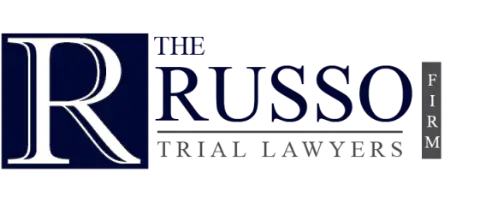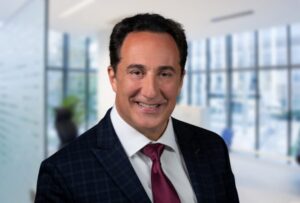Where do most car accidents happen in Fort Lauderdale, Florida? They are, unfortunately, a common occurrence. These accidents typically happen when other drivers violate traffic laws, engage in distracted driving, exhibit road rage, or drive while under the influence of alcohol or drugs.
Fort Lauderdale car accidents can happen anywhere, but they are especially common on interstate highways and most dangerous intersections throughout the city.
If you suffered injuries in a Fort Lauderdale car crash, you must have an experienced lawyer on your side every step of the way. Your car accident attorney can investigate the circumstances of your accident and file a claim for compensation with the appropriate insurance company on your behalf.
Schedule a Free Initial Consultation Today!
Common Locations for Fort Lauderdale Car Crashes
Fort Lauderdale – a bustling city in southern Florida – sees its fair share of car accidents, many resulting from other drivers’ negligence. Certain locations in the city are particularly notorious for these collisions:
- One of the most frequent locations for car accidents in Fort Lauderdale is along Interstate 95 (I-95). This major highway runs north-south through the city and experiences heavy traffic daily. The high speeds, frequent lane changes, and congestion make it a prime location for accidents. Many drivers on I-95 are either commuting to work, heading to the beach, or traveling between cities, all of which contribute to the heavy and often chaotic traffic conditions on this road.
- Another significant area prone to accidents is the intersection of Broward Boulevard and US-1. As a major thoroughfare in the city, Broward Boulevard connects several key districts and intersects with other busy roads, creating a high-traffic environment. The intersection with US-1, a major north-south route, is particularly problematic due to the high volume of vehicles, complex traffic signals, and the presence of pedestrians. In Broward county, Oakland Park Boulevard can also be a hotspot. This combination often leads to accidents – especially during rush hours when the intersection is most congested.
- Las Olas Boulevard is another common site for accidents. Known for its shops, restaurants, and nightlife, this area attracts both locals and tourists. The heavy pedestrian traffic, combined with vehicles searching for parking or navigating through the busy streets, creates numerous opportunities for accidents. Additionally, the mixture of drivers unfamiliar with the area and those in a hurry can further increase the risk of collisions.
- The Fort Lauderdale metropolitan area, particularly around the Fort Lauderdale-Hollywood International Airport, is also a notable accident hotspot. The influx of travelers, rental cars, taxis, and rideshares adds to the complexity and volume of traffic in this area. Many drivers are unfamiliar with the local roads and traffic patterns, which can lead to confusion and accidents.
- Lastly, the intersections near schools, such as those around Fort Lauderdale High School, often see accidents. The mix of student drivers, school buses, and parents dropping off or picking up their children can create a chaotic environment, especially during the start and end of the school day.
If you suffered injuries in a Fort Lauderdale car accident in one of these locations, you should talk with an experienced attorney immediately. Your lawyer can investigate the circumstances
compare data with the motor vehicles department and determine your available legal options.
Common Causes of Car Accidents in Fort Lauderdale
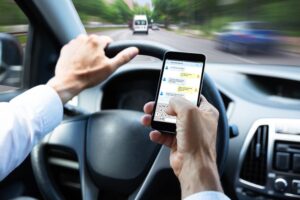 In Fort Lauderdale, car accidents frequently result from various types of negligence by other drivers.
In Fort Lauderdale, car accidents frequently result from various types of negligence by other drivers.
Distracted driving is one of the most common ways that other drivers cause accidents. This includes activities such as texting, talking on the phone, eating, or adjusting the radio while driving. When a driver’s attention is not fully focused on the road, their reaction times are slower, making it more difficult to respond to sudden changes in traffic conditions. In a busy city like Fort Lauderdale, where traffic can be unpredictable, even a momentary distraction can lead to a serious accident.
Speeding is another major factor in Florida highway safety. Many drivers exceed the speed limit, especially on highways like I-95 or busy roads like Broward Boulevard. Speeding reduces a driver’s ability to react to hazards and often increases the severity of collisions. It’s particularly dangerous in areas with heavy traffic or at intersections, where stopping or slowing down quickly is often necessary.
Running red lights or stop signs is also a common negligent behavior. In Fort Lauderdale, busy intersections can be particularly hazardous when drivers fail to obey traffic signals. Running a red light not only puts drivers at risk but also endangers pedestrians and other vehicles that have the right-of-way. This type of negligence often results in high-speed collisions, which can be devastating.
Tailgating, or following too closely, is another frequent cause of car accidents in Fort Lauderdale. In heavy traffic, some drivers become impatient and follow the car in front of them too closely. This reduces the time they must react if the leading car suddenly slows down. Rear-end collisions are a common result of tailgating and can cause significant damage and injuries.
Failing to yield the right-of-way is another common issue. Not yielding can lead to serious accidents, whether at a roundabout, during a lane change, or when merging onto a highway. Drivers in Fort Lauderdale often encounter situations where they must yield, and failing to do so can create dangerous situations for everyone on the road.
Lastly, driving under the influence of alcohol or drugs remains a significant problem. Drunk driving and impaired drivers have reduced reaction times and impaired judgment, making them a major hazard. Despite strict laws and enforcement, incidents of DUI-related accidents still occur in Fort Lauderdale, posing a serious threat to public safety.
Common Injuries and Medical Treatment Arising from a Fort Lauderdale Car Crash
Car crashes in Fort Lauderdale often lead to a range of injuries, varying from minor to severe, including the following:
One frequent injury is whiplash, a neck injury resulting from sudden back-and-forth movement of the head, typical in rear-end collisions. Symptoms include neck pain, stiffness, and headaches. Treatment for whiplash often involves pain relievers, physical therapy, and, in some cases, wearing a cervical collar to immobilize the neck and allow it to heal.
Another common injury is a concussion, a type of traumatic brain injury (TBI). It occurs when a blow to the head disrupts brain function. Symptoms may include headaches, dizziness, confusion, and memory problems. Treatment usually involves rest, avoiding strenuous activities, and, in severe cases, specialized care from a neurologist.
Broken bones are also prevalent in car accidents. The force of a crash can fracture limbs, ribs, and other bones. Depending on the severity, treatment can range from casting and splinting to surgical procedures involving metal plates and screws to realign and stabilize the bones.
Internal injuries, such as damage to organs, are also serious and often life-threatening. The liver, spleen, and lungs are particularly vulnerable. These injuries may not be immediately apparent, requiring diagnostic tests like CT scans or ultrasounds. Treatment often requires emergency surgery to repair damaged tissues and control internal bleeding.
Spinal cord injuries are among the most severe outcomes of Fort Lauderdale car accidents. Damage to the spinal cord can result in partial or complete paralysis, depending on the injury’s location and extent. Treatment typically involves emergency surgery to relieve pressure on the spinal cord, followed by long-term rehabilitation and physical therapy to maximize recovery and adapt to any permanent impairments.
Cuts and lacerations from broken glass or debris are also common. While minor cuts may only need cleaning and bandaging, deeper lacerations might require stitches or even plastic surgery to repair extensive damage and minimize scarring.
Lastly, emotional and psychological injuries such as post-traumatic stress disorder (PTSD) can arise after a Fort Lauderdale car accident. Symptoms include anxiety, flashbacks, and depression. Treatment often involves therapy, counseling, and sometimes medication to manage symptoms.
Available Insurance Options in a Fort Lauderdale Car Accident Case
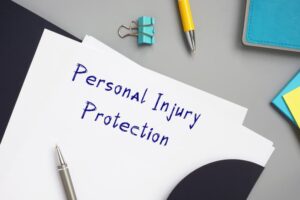 In Fort Lauderdale, car accident victims have several insurance options to consider when seeking compensation for their injuries and damages.
In Fort Lauderdale, car accident victims have several insurance options to consider when seeking compensation for their injuries and damages.
One primary insurance option available in Florida is Personal Injury Protection (PIP) coverage. PIP, also known as “no-fault” insurance, is mandatory for all drivers in the state. It provides coverage for medical expenses, lost income, and other related costs, regardless of who was at fault in the accident. PIP typically covers up to $10,000 in medical bills and 60 percent of lost income. However, seeking medical treatment within 14 days of the accident is important to qualify for PIP benefits. PIP aims to offer quick financial assistance to injured parties without the need to establish fault.
In some cases, the damages from a car accident may exceed the limits of PIP coverage due to particularly serious injuries. When this happens, victims may file a third-party claim against the at-fault driver’s insurance. This type of claim allows the injured party to seek compensation for medical expenses, total lost income, pain and suffering, and property damage that surpasses their PIP insurance coverage limits. To file a third-party claim, it’s necessary to prove that the other driver was negligent and responsible for the accident.
Uninsured/underinsured motorist (UM/UIM) coverage is another important insurance option. Although not mandatory, UM/UIM coverage is highly recommended. It provides protection when the at-fault driver either doesn’t have insurance or doesn’t have enough insurance to cover the full extent of the damages. In such situations, UM/UIM coverage can help to bridge the gap, ensuring that the injured party receives adequate compensation.
Each type of insurance coverage offers different benefits, and an experienced Fort Lauderdale car accident lawyer can file the appropriate claim(s) on your behalf, depending upon your situation.
Recovering Third-party Damages after a Car Accident in Fort Lauderdale
Successfully proving a third-party car accident case in Fort Lauderdale requires gathering evidence and demonstrating the at-fault driver’s negligence. Here’s how victims can build a strong case and recover the compensation they deserve for their losses:
- First, gathering evidence is crucial. This includes collecting information from the scene of the accident, such as photographs of the vehicles involved, skid marks, and road conditions. Eyewitness testimony can also provide valuable insight into what happened. Additionally, obtaining a copy of the police report and any available surveillance footage can further support the case.
- Medical records are another essential piece of evidence. They document the extent of the victim’s injuries, the treatment received, and any ongoing medical needs. This information helps to establish the severity of the damages suffered due to the accident.
Proving negligence requires demonstrating that the at-fault driver breached their duty of care and that this breach directly caused the victim’s injuries. Common examples of driver negligence include speeding, reckless driving, distracted driving, and driving under the influence of drugs or alcohol. Witness statements, police reports, and expert testimony can all help to establish negligence.
After establishing negligence, injured accident victims may be eligible to recover various types of third-party compensation. Economic damages, such as medical expenses and lost income, are quantifiable losses that can be easily calculated. This includes past and future medical bills, rehabilitation costs, and lost earning capacity due to the injuries.
Non-economic damages, on the other hand, are more subjective and may include pain and suffering, emotional distress, and loss of enjoyment of life. These damages aim to compensate victims for the physical and emotional toll of the accident, as well as any lasting effects on their quality of life.
In cases of extreme negligence or malicious intent, punitive damages may also be available. Unlike compensatory damages, which aim to reimburse the victim for their losses, punitive damages are intended to punish the at-fault party and deter similar future behavior.
By building a strong case and seeking skilled legal representation, injured car accident victims in Fort Lauderdale can pursue favorable third-party compensation for their economic and non-economic losses, as well as punitive damages in certain cases.
Speak with an Experienced Car Accident Lawyer in Fort Lauderdale Today
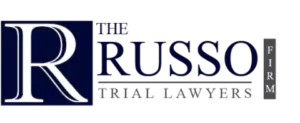 If you recently sustained injuries in a Fort Lauderdale car crash, you may be eligible for significant compensation. A skilled personal injury attorney can aggressively fight for your rights and pursue the maximum compensation available in your case.
If you recently sustained injuries in a Fort Lauderdale car crash, you may be eligible for significant compensation. A skilled personal injury attorney can aggressively fight for your rights and pursue the maximum compensation available in your case.
Once you schedule your free case evaluation, you will have a better understanding of your legal rights and options. You can rest assured knowing a trusted professional is protecting your interests.
